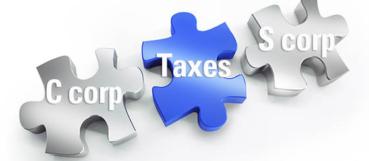Tax-smart domestic travel: Combining business with pleasure

Summer is just around the corner, so you might be thinking about getting some vacation time. If you’re self-employed or a business owner, you have a golden opportunity to combine a business trip with a few extra days of vacation and offset some of the cost with a tax deduction. But be careful, or you might not qualify for the write-offs you’re expecting.
Basic rules
Business travel expenses can potentially be deducted if the travel is within the United States and the expenses are:
- “Ordinary and necessary” and
- Directly related to the business.
Note: The tax rules for foreign business travel are different from those for domestic travel.
Business owners and the self-employed are generally eligible to deduct business travel expenses if they meet the tests described above. However, under the Tax Cuts and Jobs Act, employees can no longer deduct such expenses. The potential deductions discussed in this article assume that you’re a business owner or self-employed.
A business-vacation trip
Transportation costs to and from the location of your business activity may be 100% deductible if the primary reason for the trip is business rather than pleasure. But if vacation is the primary reason for your travel, generally no transportation costs are deductible. These costs include plane or train tickets, the cost of getting to and from the airport, luggage handling tips and car expenses if you drive. Costs for driving your personal car are also eligible.
The key factor in determining whether the primary reason for domestic travel is business is the number of days you spend conducting business vs. enjoying vacation days. Any day principally devoted to business activities during normal business hours counts as a business day. In addition:
- Your travel days count as business days, as do weekends and holidays — if they fall between days devoted to business and it wouldn’t be practical to return home.
- Standby days (days when your physical presence might be required) also count as business days, even if you aren’t ultimately called upon to work on those days.
Bottom line: If your business days exceed your personal days, you should be able to claim business was the primary reason for a domestic trip and deduct your transportation costs.
What else can you deduct?
Once at the destination, your out-of-pocket expenses for business days are fully deductible. Examples of these expenses include lodging, meals (subject to the 50% disallowance rule), seminar and convention fees, and cab fare. Expenses for personal days aren’t deductible.
Keep in mind that only expenses for yourself are deductible. You can’t deduct expenses for family members traveling with you, including your spouse — unless they’re employees of your business and traveling for a bona fide business purpose.
Keep good records
Be sure to retain proof of the business nature of your trip. You must properly substantiate all of the expenses you’re deducting. If you get audited, the IRS will want to see records during travel you claim was for business. Good records are your best defense. Additional rules and limits apply to travel expense deductions. Please contact us if you have questions.
© 2019





